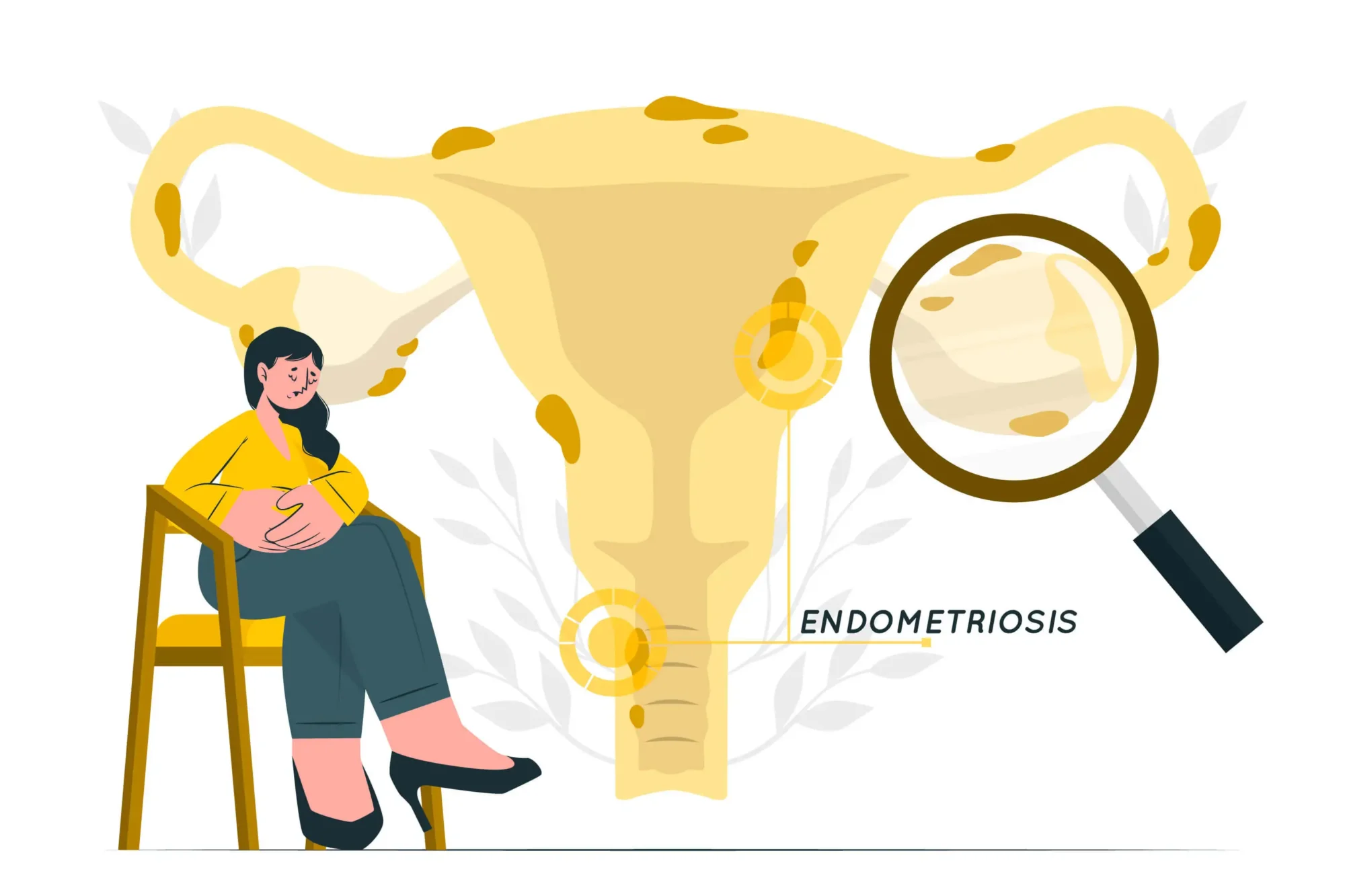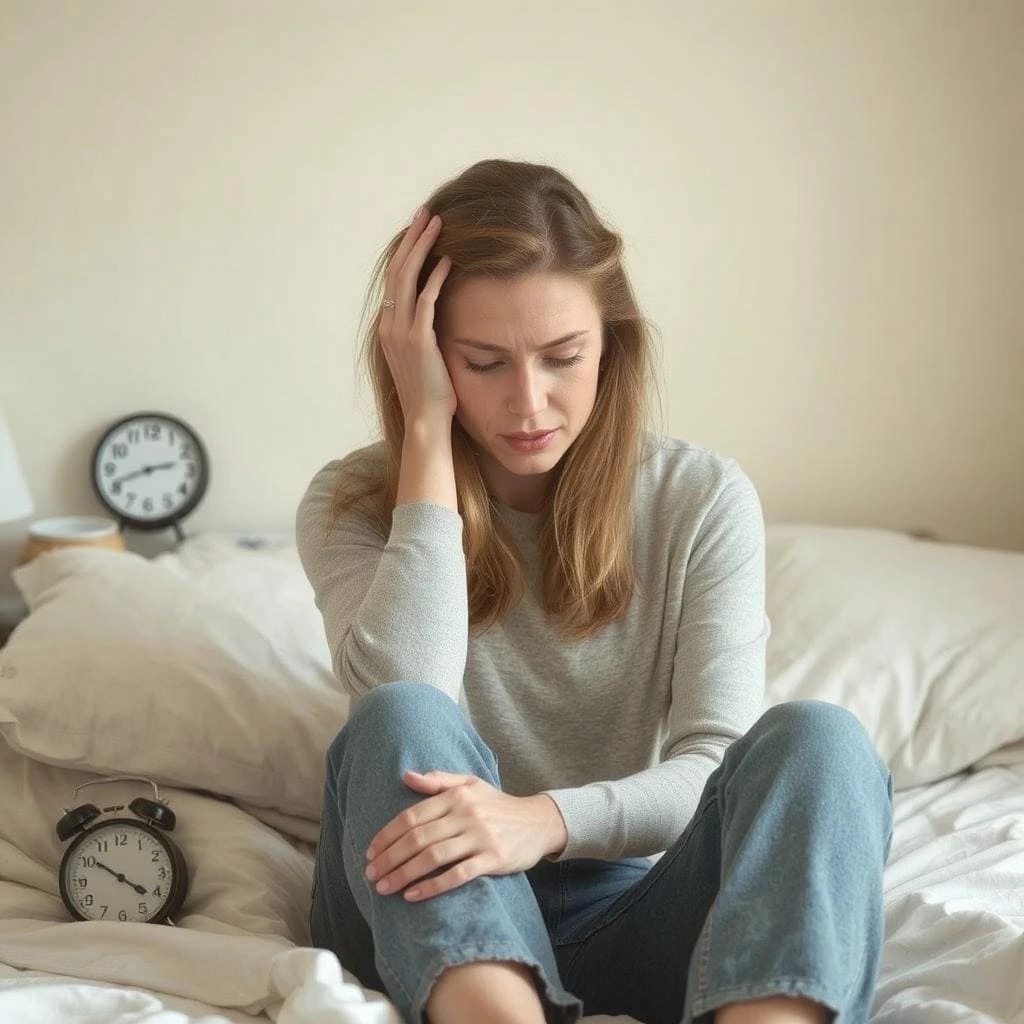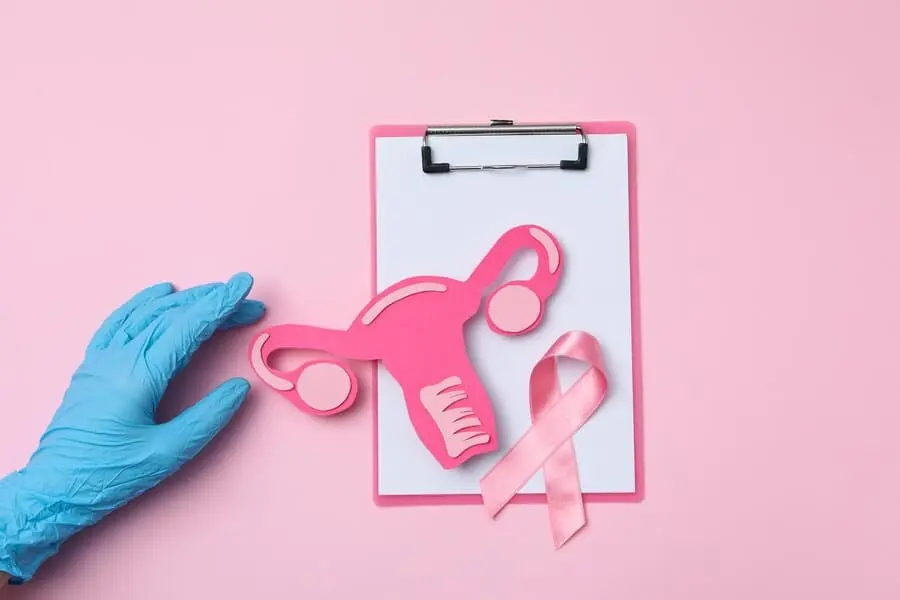Endometriosis is a condition that continues to affect millions of women worldwide. It happens when tissue similar to the lining of the uterus grows outside of it. This causes pain and other symptoms. But many women don’t even realize they have endometriosis until it starts to interfere with their daily lives. Knowing the symptoms can help you take action and talk to your doctor sooner. Here are the top 7 symptoms of endometriosis you should watch out for.
Top 7 Symptoms of Endometriosis
Painful Periods (Dysmenorrhea)
It is the most common symptom of endometriosis. Having some cramps during your period is normal, but with endometriosis, the pain can be much worse. It’s not just an uncomfortable feeling; it’s sharp, intense, and can make it hard to get through your day. The pain might start before your period and last for several days after it ends. Some women also feel pain in their lower back and abdomen.
This kind of pain can be so severe that over-the-counter painkillers might not provide relief. It affects your routine and makes simple tasks feel impossible to do. Some women describe it as a stabbing or throbbing pain that drains their energy. If your periods are so painful that you’re missing school, work, or other activities, it’s time to speak with a healthcare provider.
Want tips to manage painful periods, check out the 7 best yoga poses for period pain relief.”
Why Does It Happen?
The tissue outside the uterus behaves like the tissue inside it. The tissue outside the uterus acts like the tissue inside. It becomes inflamed, breaks down, and bleeds during your period. However, unlike normal uterine tissue, it has no way to exit the body. This trapped tissue irritates the surrounding area, causing pain and inflammation. Over time, this can lead to scar tissue and adhesions, making the pain even worse.
Chronic Pelvic Pain
Pelvic pain that doesn’t go away even when you’re not on your period could be a sign of endometriosis. This may also feel like some dull ache or sharp stabbing sensations. It’s often felt in the lower abdomen or pelvis.
This symptom can vary in intensity. Some women may only feel mild discomfort, while others might experience severe pain that interferes with their daily lives. Chronic pelvic pain can also radiate to the lower back or even the thighs, making it hard to trace the source of the pain. If this is a recurrent feature of your life, do not downplay it. Your body is trying to tell you that something is amiss, too.
How to Track It
Keeping a pain journal can help identify patterns. Write down when the pain occurs, its intensity, and how it affects your activities. This information can be helpful when you discuss your symptoms with your doctor.
Pain During or After Sex
Endometriosis can make intimacy painful. Some women feel pain during or after sex, which can make them avoid it altogether. This pain happens because the misplaced tissue can cause inflammation and irritation in the pelvic area.
The pain might be felt deep inside the pelvis, and it can last for hours or even days after intercourse. This symptom can take a toll on relationships and emotional well-being. It’s important to understand that pain during sex is not normal and should not be ignored. If this is something you’re experiencing, it’s a good idea to seek professional help. There are treatments that can help reduce this pain and improve your quality of life.
Emotional Impact
Pain during intimacy can lead to feelings of frustration, embarrassment, or even guilt. It’s important to communicate openly with your partner and seek support from a counselor or support group if needed.
Heavy or Irregular Periods
Do you notice that your periods are unusually heavy or that they last longer than normal? Endometriosis can cause changes in your menstrual cycle, including heavy bleeding (also called menorrhagia) or spotting between periods.
Heavy periods can be exhausting and may even lead to anemia, a condition where your body doesn’t have enough healthy red blood cells. tracking your cycle can help you notice these changes. Use a period tracker app or a simple calendar to write down the number of days you bleed and how heavy the flow is. If it’s heavier than usual or includes large clots, mention it to your doctor.
Managing Heavy Bleeding
If heavy periods are affecting your daily life, there are ways to manage them. Your doctor may suggest hormonal treatments or iron supplements to combat anemia. Rest and hydration can also help during heavy flow days.
Digestive Issues
Endometriosis doesn’t just affect your reproductive system; it can also mess with your digestive system. Some women experience symptoms like bloating, constipation, diarrhea, or even nausea. These issues might get worse during your period.
Bloating, often called “endo belly,” can make you feel like your stomach is swollen and uncomfortable. It’s not uncommon for women with endometriosis to feel full quickly or have difficulty eating large meals. Digestive issues can be mistaken for conditions like irritable bowel syndrome (IBS), so it’s important to pay attention to when these symptoms occur. If you have stomach troubles that don’t seem to go away or always happen around your period, they could be linked to endometriosis. It’s worth mentioning to your doctor so they can investigate further.
Tips for Relief
- Eat smaller, more frequent meals.
- Avoid foods that trigger bloating, like beans and carbonated drinks.
- Stay hydrated and include fiber in your diet to ease constipation.
Infertility
For some women, the first sign of endometriosis is difficulty getting pregnant. The condition can cause scarring and blockages in the fallopian tubes, which makes it harder for the egg to meet the sperm. It can also affect the quality of the egg or the environment of the uterus.
Endometriosis-related infertility can be devastating for women who are trying to start a family. However, it’s important to know that having endometriosis doesn’t always mean you can’t get pregnant. Treatments like surgery or fertility therapies can improve your chances. If you’ve been trying to conceive for a year or more without success, talk to a fertility specialist. They can perform tests to check for endometriosis and suggest options to help you achieve pregnancy.
Hope and Options
Even with endometriosis, many women have successfully started families. Advances in fertility treatments and surgeries offer hope to those struggling with infertility.
Fatigue
Feeling tired all the time? Fatigue is another symptom of endometriosis. Chronic pain and inflammation can wear your body down, making you feel exhausted even if you’re getting enough sleep.
This kind of tiredness can affect your mood, concentration, and overall quality of life. Many women with endometriosis also experience emotional symptoms like anxiety or depression, which can make fatigue even worse. If fatigue is something you’re struggling with, it’s important to mention it during your doctor’s visit. Taking care of your physical and mental health is key to managing endometriosis.
Self-Care Tips
- Prioritize rest and don’t overexert yourself.
- incorporate relaxation techniques such as meditation or deep breathing into your routine.
- Seek professional help from a mental health expert if you feel overwhelmed.
What to Do If You Have These Symptoms
If you have one or more of these symptoms, you should not disregard them. Endometriosis is a serious condition, but it’s also treatable. The first step is to visit a healthcare provider. They might recommend tests like an ultrasound or laparoscopy to confirm the diagnosis.
Treatments for endometriosis include:
- Pain relievers, like ibuprofen.
- hormones regulating medication
- Surgery to remove the excess tissue.
- Fertility treatments if you’re trying to conceive
Besides medical treatments, lifestyle changes also help. Regular exercise, a healthy diet, and stress management techniques like yoga or meditation can make a difference.
Building a Support System
Joining an endometriosis support group can connect you with others who understand what you’re going through.
Wrapping It Up
Endometriosis is more common than many people think, but it’s also often misunderstood. If you’ve been dealing with any of these symptoms, you’re not alone. Many women have gone through the same thing and found relief with proper treatment.
Early diagnosis and treatment can make a big difference in managing endometriosis and improving your quality of life. So don’t hesitate to reach out for help—you deserve to feel your best!
If you’re unsure about your symptoms, keeping a symptom diary can be a helpful first step. Write down what you feel, when it happens, and how it affects your day. This information can give your doctor a clearer picture and help them create a treatment plan tailored to your needs.
Remember, you’re not alone in this journey. There is support and treatment available to help you live a healthy, happy life.
Want to stay updated on women’s health? Join our newsletter for weekly tips and articles.”




